Barbra Streisand regrets rejecting Brando, reveals Elvis was nearly cast in 'A Star is Born'
Purchases you make through our links may earn us and our publishing partners a commission.
“My Name is Barbra” is everything you could want from a Barbra Streisand memoir.
In her scintillating 992-page tome (out now, Penguin Random House), the stage and screen legend spares no detail about her tough upbringing, her illustrious career, and all the friendships and flirtations in between. Streisand, 81, devotes chapters to many of her most beloved films including “What’s Up Doc?”, “Hello Dolly!” and “The Way We Were,” and recounts how she met her husband of 25 years, actor James Brolin.
The memoir is as sharp, funny and refreshingly candid as Streisand herself, as the peerless singer opens up about stage fright and early criticisms of her appearance, with “several people” telling her to get a nose job before her big break.
Here’s what else we learned from the revealing “My Name is Barbra”:
Interview: Barbra Streisand on Judy Garland, 'What's Up Doc?' and why she could 'still play Mama Rose'
Barbra Streisand fought 'diva myth,' discovered passion for directing on 'Funny Girl'
In the book’s 14th chapter, Streisand meticulously recounts the making of her very first movie, 1968’s “Funny Girl,” in which she reprised the role of Fanny Brice that she previously played on Broadway. She recalls some of the bizarre ways director Sidney Lumet (“Network”) intended to reimagine the musical numbers – with magical instruments and unsightly infants, among them – before he was replaced by filmmaker William Wyler (“Ben-Hur”).
Streisand fondly recalls her collaborations with Wyler and cinematographer Harry Stradling, and the ways they welcomed her feedback. It was her suggestion that the heart-tugging “People” be shot in medium close-up, and that the saucy “You Are Woman, I Am Man” be sung primarily in voiceover. After the movie had already wrapped production, she also asked to reshoot stirring final anthem “My Man” so she could perform it live on set, rather than lip-sync to a prerecorded track.
“Although I didn’t realize it at the time, I was thinking like a director,” writes Streisand, who in 1984, became the first woman to win a best director Golden Globe for “Yentl.” “Maybe I would be a better actress if I was more focused on my part alone. But I was concerned about the whole movie. How does that scene pertain to the next one? Does that moment serve the story?”
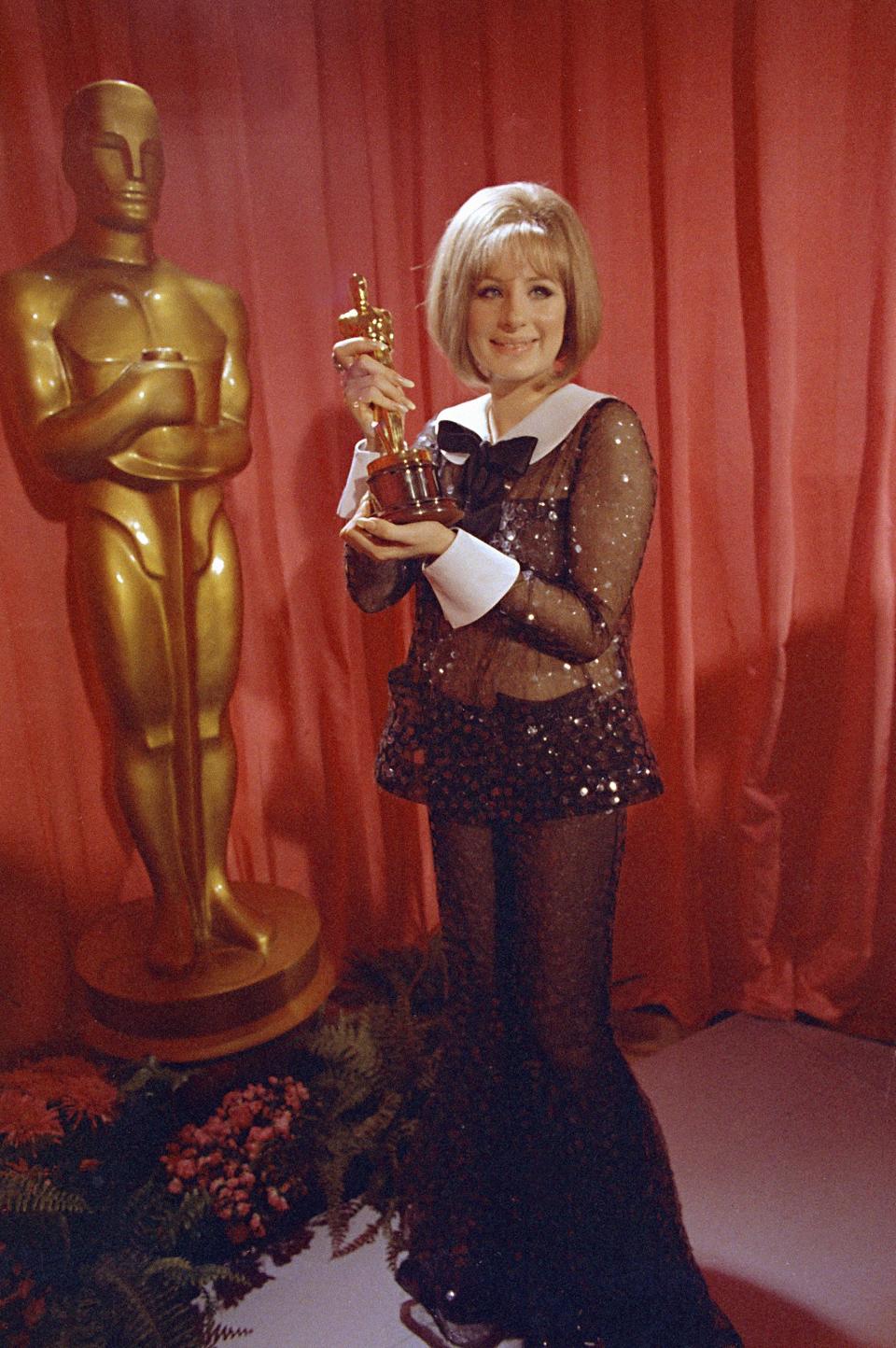
Gossip columns at the time claimed that she was difficult and controlling. Wyler came to her defense, saying that she was “totally dedicated” and wanted to “improve herself.”
“It was the beginning of the diva myth that has followed me all my life,” Streisand writes. “I was not giving orders. I was asking questions. That’s how I learn. But I guess some people had a hard time with a woman who had opinions, and word went out that I was taking over.”
At the end of the shoot, Wyler gifted Streisand a director’s megaphone stamped “Barbra Streisand DGA.”
“I was so thrilled that he thought enough of my ideas to give me such an inspiring gift, encouraging me to direct,” she writes. “It was funny and prophetic and it’s one of my most prized possessions.”
'My Name is Barbra' memoir reveals love letters from Omar Sharif
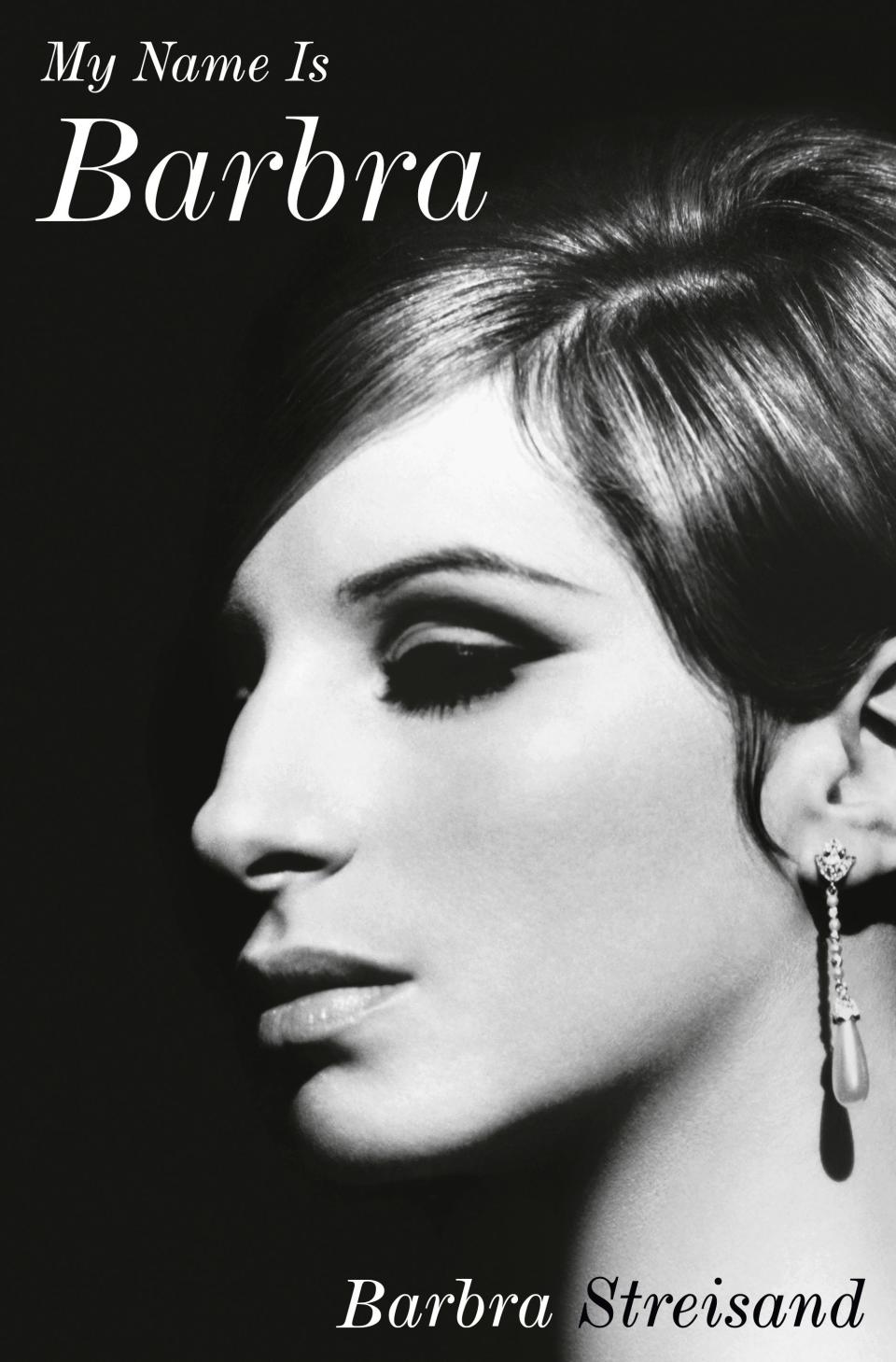
Streisand was 25 when she started shooting “Funny Girl” in Los Angeles in summer 1967. At the time, her first husband, actor Elliott Gould, was shooting a project in New York. The couple, who married in 1963, had been “drifting apart for a couple years.”
“Even though we were technically together, we were already leading separate lives,” Streisand writes. It made the movie’s iconic opening line, “Hello gorgeous,” that much more emotional to shoot, as Fanny reckons with stardom and her tumultuous marriage to Nick Arnstein (Omar Sharif).
“I had achieved my dream … but at the same time, I was losing my husband,” Streisand writes. “And I didn’t know how to fix it, or if I even wanted to. And I had a 9-month-old baby (Jason). I felt so vulnerable. You can see it in my eyes.”
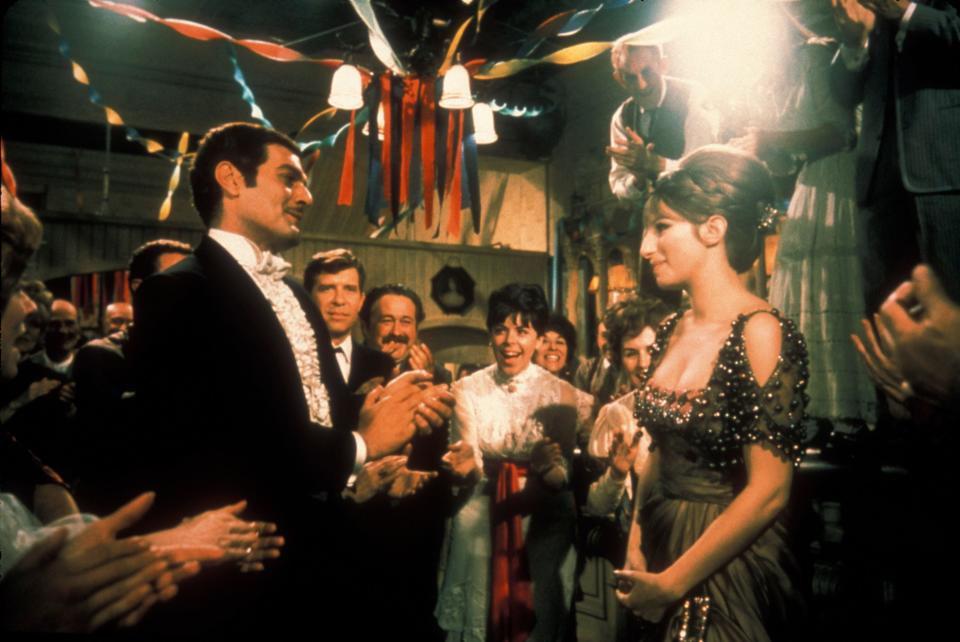
Initially, Streisand and Sharif did not care much for each other: She thought he was “rude,” and he told a reporter she’s “not very pretty.” But the two eventually grew close throughout shooting, although she writes that their relationship never escalated beyond holding hands, going out to dinner or playing cards. While writing her memoir, Streisand discovered old love letters that Sharif had written to her after making “Funny Girl.”
“There are lines like: ‘The thing I want most in my life is to have you with me, to go everywhere together, to hold you in my arms, to put you to sleep and to wake you up. To kiss you, talk to you, love you with all my being. ... And all the time you’re singing to me,’“ Streisand writes. “He had me until the line about my singing.”
“Our attraction to each other worked for the movie, but I couldn’t see a future with him,” she continues. “Recently I had the chance to meet his grandson, who said Omar told him: ‘Aside from your grandmother, Barbra is the only woman who ever captured my heart. If things had turned out differently, she could have been your bubbie!’ “
Streisand felt 'stupid' rejecting Brando, courted Elvis for 'A Star is Born'
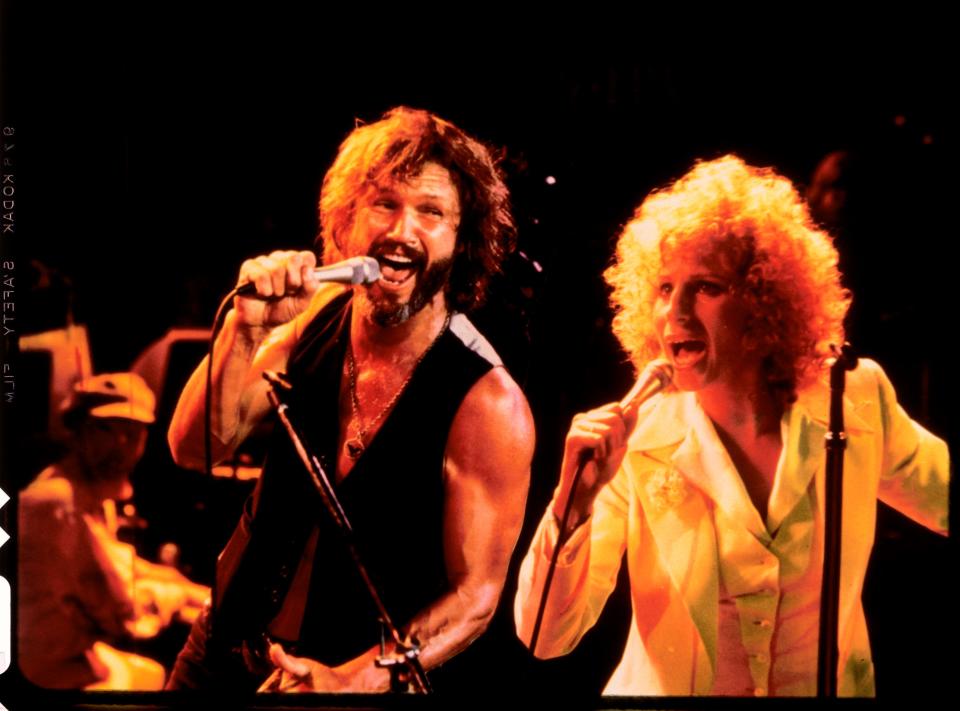
Streisand divulges many other memorable celebrity encounters throughout “My Name is Barbra.” One chapter is devoted to her longstanding friendship with Marlon Brando, who made many passionate advances before and after her 1971 divorce from Gould.
“Now, looking back, I can hardly believe my response,” Streisand says. “How stupid! Today I would be more adventurous, but I was too insecure sexually back then, still a nice Jewish girl from Brooklyn with my mother’s admonitions echoing in my head. Free love was not my style.”
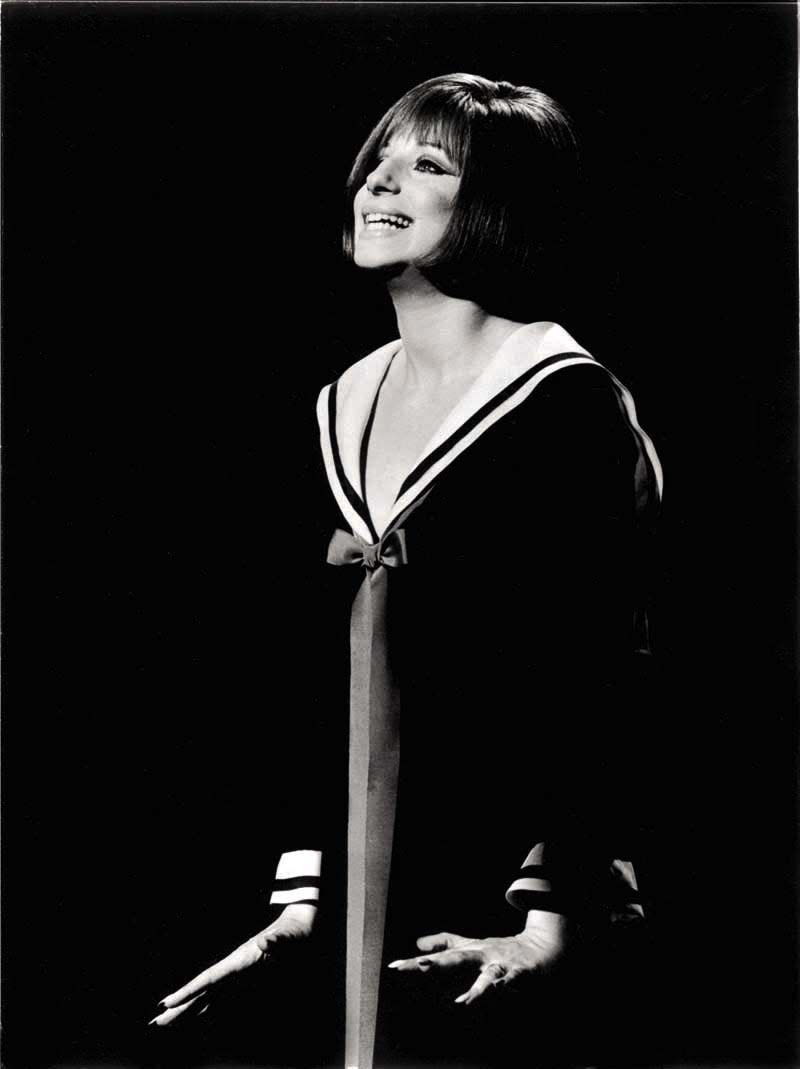
Streisand also recalls how she and her former partner, producer Jon Peters, once considered Elvis Presley to co-star with her in 1976 music drama “A Star is Born,” before the role went to Kris Kristofferson. She even flew to Las Vegas to meet with Presley in person.
“We talked about the film, and Elvis was interested,” Streisand writes. “But obviously it didn’t work out. Marty (Erlichman, her longtime manager) says that Colonel Parker asked for more money than we could afford. And Jon says the Colonel wanted to produce the film. I’m not sure about that. I do know that Elvis had gained a lot of weight and was no longer at the top of his game, although he was still drawing big audiences. Maybe the story was a little too close to his own life, and the Colonel talked him out of it.”
And in one passage, Streisand recalls the night of the Oscars when she won best actress for “Funny Girl,” tying with Katharine Hepburn for “The Lion in Winter.” Hepburn was not in attendance but sent her a congratulatory note afterward.
“Dear Barbra, I think that you are really first rate and full of whatever it is and I am proud to share that perch with you for the next year. Incidentally I just hope that osmosis transfers a little of what you have to me. With warm regards, Kate Hepburn.”
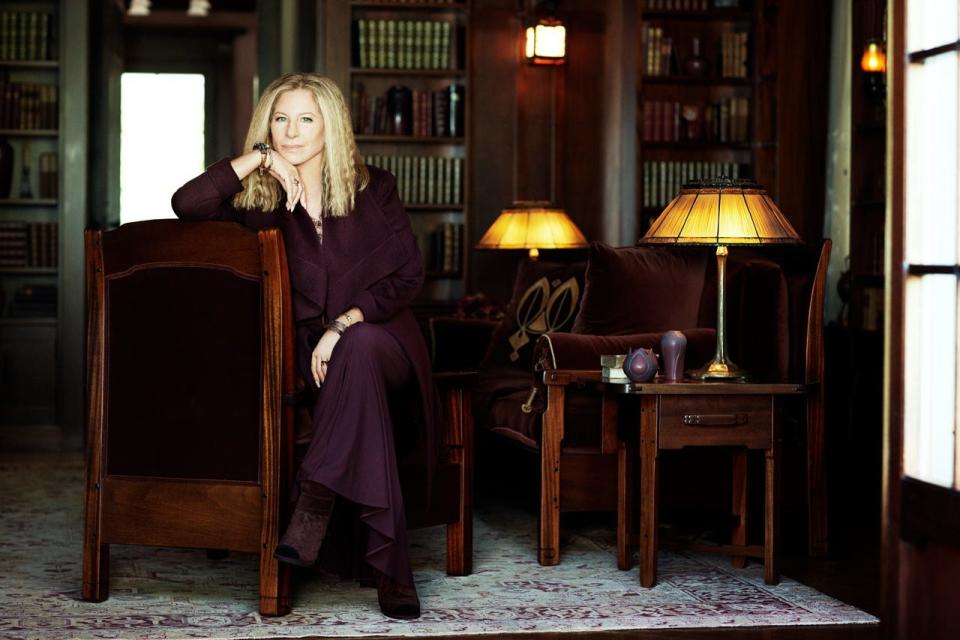
Streisand, who last appeared onscreen in 2012 comedy “The Guilt Trip” with Seth Rogen, concludes the book writing about her crushing disappointment that she never got to make the “Gypsy” movie musical she had long dreamed of. Her passion for the silver screen shines throughout the memoir.
“I love film! It’s the perfect medium for me,” Streisand writes. “You do each scene, and then that’s it. Done. People can be watching me act my heart out, singing and sweating ... meanwhile I’m at home taking a lovely bath.”
This article originally appeared on USA TODAY: Barbra Streisand memoir’s biggest revelations about Brando, Elvis
